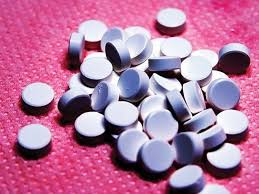
This was stated by Muttahida Qaumi Movement-Pakistan (MQM-P) Senator Mian Ateeq Shaikh while addressing a seminar on drug prices in Pakistan, myth and reality. The seminar had been organised by the Sustainable Development Policy Institute (SDPI) on Monday.
Shaikh said that even though his party was an ally of the ruling PTI government, but that does not mean he would turn a blind eye on the criminal price hike of essential medicines.
Federal health minister seeks special audit of DRAP over drugs price hike
He said that the pharmaceutical industry is entitled to get a profit but there should be some limits to profiteering because it is a regulated industry.
“Owners of pharmaceutical factories earn billions of rupees of profit on a single medicine every year,” he claimed, adding that recently, 200 to 300 per cent increase in the price of medicines had been observed, which was cruelty and injustice with the public.
Conceding that the government and the Drug Regulatory Authority of Pakistan (DRAP) had launched a crackdown against companies selling medicines at higher than approved rates by confiscating their stocks, Shaikh lamented that no first information report (FIR) had been filed with the police against the perpetrators.
He further decried the poor standards of the apex drug regulator in the country, noting that DRAP was currently at level three of World Health Organization (WHO) standard certifications while other countries in the region were already on the seventh level.
Parliamentary Secretary for Health Dr Nausheen Hamid said that the government was working on revising DRAP law whereby all shortcomings in the drug regulatory mechanism will be addressed.
For this purpose, the PTI lawmaker said that every stakeholder will be consulted and a consensus on the matter will be evolved soon.
She informed that the health ministry has hired a team of information technology experts to help develop a centralized computer system where the data of the 45,000 medicines manufactured in the country will be updated and complete information about every single medicine will be available to the public.
Shedding light on the recent price increases allowed by DRAP, Dr Hamid said that her ministry reviewed 889 cases for the price increase but allowed only 463 hardship cases to raise their prices a maximum of 15 per cent.
As a suggestion to offset costs, she said that the 700 pharmaceutical companies could enhance their export potential from the current level of $200 million. “The government has plans to explore this potential,” she said.
Pakistan Pharmaceutical Manufacturers Association (PPMA) North Chairman Chaudhary Ansar Farooq argued that the pharma industry in the country was providing medicines affordable rates when compared to other regional countries such as India and Bangladesh.
He further explained that 90% of the raw material for drugs was imported and had been directly affected by the fast-rising value of the US greenback.
The pharma industry, Farooq said, was highly regulated and high-tax paying industry, which provides more than 4 million jobs.
On behalf of the PPMA, he said that they welcome and support the prime minister’s decision to set up a committee headed by Dr Ishrat Hussain to probe the hikes.
Moreover, he claimed that the PPMA was complying with Prime Minister Imran Khan’s 72 hours deadline to reverse the drug price hike.
Pakistan Muslim League-Nawaz (PML-N) MNA Romina Khurshid Alam urged DRAP to provide parliamentary bodies at the national assembly and Senate level with the correct facts and that the authority should be held accountable for misguiding lawmakers.
To resolve the issue, she suggested calling for a joint meeting of the National Assembly and Senate standing committees on health.
PML-N’s Dr Nisar Ahmed Cheema, who is part of the national assembly standing committee on health, said that the way drug prices had been raised recently had exposed the incompetence of the incumbent government.
He said it was a collective failure that despite having a regulator, they had failed to control this industry.
“There is no mechanism developed to check and ensure the quality of raw material on entry point which mostly imported from the abroad,” he pointed out.
Dr Azizur Rehman, who wrote the book Pharmacy of the Developing World, said that patients generally have no knowledge about alternative and cost-effective medicines and solely rely on the doctor’s prescription.
Published in The Express Tribune, April 16th, 2019.


1723278472-0/BeFunky-collage-(4)1723278472-0-165x106.webp)



1732530440-5/Copy-of-Untitled-(85)1732530440-5-270x192.webp)

1732525382-0/Express-Tribune-(10)1732525382-0-270x192.webp)

1732523977-0/Copy-of-Untitled-(82)1732523977-0-270x192.webp)






COMMENTS
Comments are moderated and generally will be posted if they are on-topic and not abusive.
For more information, please see our Comments FAQ